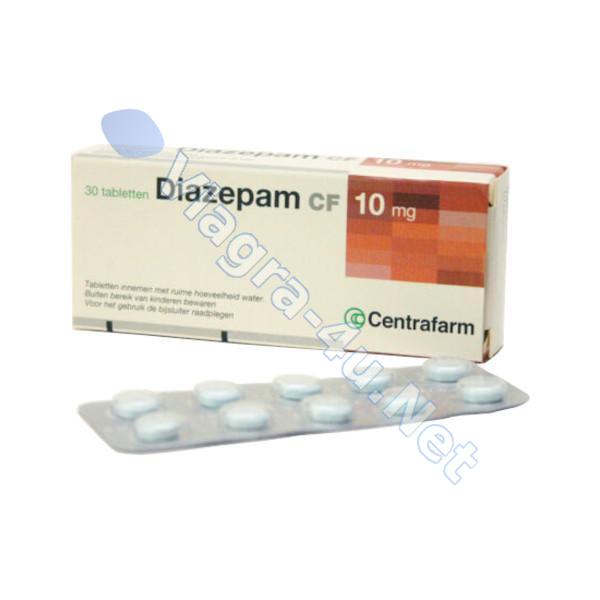
Diazepam 10mg is a medication of the benzodiazepine family that typically produces a calming effect. It is commonly used to treat a range of conditions including anxiety, alcohol withdrawal syndrome, benzodiazepine withdrawal syndrome, muscle spasms, seizures, trouble sleeping, and restless legs syndrome.
DIAZEPAM 10mg belongs to a group of drugs called benzodiazepines. Diazepam affects chemicals in the brain that may become unbalanced and cause anxiety.
DIAZEPAM 10mg is used to treat anxiety disorders, alcohol withdrawal symptoms, or muscle spasms. Diazepam is sometimes used with other medications to treat seizures. Diazepam 10mg may also be used for purposes not listed in this medication guide.
You should not use Diazepam if you are allergic to diazepam or similar medicines (Ativan, Klonopin, Restoril, Xanax, and others), or if you have myasthenia gravis, severe liver disease, narrow-angle glaucoma, a severe breathing problem, or sleep apnea. Do not use DIAZEPAM if you are pregnant. It could harm the unborn baby.
Before you take Diazepam, tell your doctor if you have glaucoma, asthma or other breathing problems, kidney or liver disease, seizures, or a history of drug or alcohol addiction, mental illness, depression, or suicidal thoughts.
Do not drink alcohol while taking Diazepam 10mg. This medicine can increase the effects of alcohol.
Never take more of this medication than your doctor has prescribed. An overdose of Diazepam can be fatal.
Diazepam may be habit-forming and should be used only by the person it was prescribed for. Keep the medication in a secure place where others cannot get to it.
Diazepam may be habit forming and should be used only by the person it was prescribed for. Never share Diazepam with another person, especially someone with a history of drug abuse or addiction. Keep the medication in a place where others cannot get to it. You should not use Diazepam 10mg if you are allergic to diazepam or similar drugs (Ativan, Klonopin, Restoril, Xanax, and others), or if you have:
Do not give DIAZEPAM to a child younger than 6 months old.
To make sure you can safely take Diazepam, tell your doctor if you have any of these other conditions:
Take Diazepam exactly as prescribed by your doctor. Do not take in larger or smaller amounts or for longer than recommended. Follow the directions on your prescription label.
Your doctor may occasionally change your dose to make sure you get the best results.
Measure liquid medicine with a special dose measuring spoon or medicine cup, not with a regular table spoon. If you do not have a dose measuring device, ask your pharmacist for one.
Diazepam should be used for only a short time. Do not take this medication for longer than 12 weeks (3 months) without your doctor's advice. Do not stop using Diazepam suddenly without first talking to your doctor. You may have increased seizures or unpleasant withdrawal symptoms when you stop taking Diazepam. You may need to use less and less before you stop the medication completely. Call your doctor at once if you feel that this medicine is not working as well as usual, or if you think you need to use more than usual.
Take the missed dose as soon as you remember. Skip the missed dose if it is almost time for your next scheduled dose. Do not take extra medicine to make up the missed dose.
Seek emergency medical attention or call 911. An overdose of diazepam can be fatal.
Overdose symptoms may include extreme drowsiness, loss of balance or coordination, confusion, limp or weak muscles, or fainting.
This medicine may impair your thinking or reactions. Be careful if you drive or do anything that requires you to be alert. Do not drink alcohol while taking Diazepam. This medication can increase the effects of alcohol.
Get emergency medical help if you have any of these signs of an allergic reaction to Diazepam: hives; difficulty breathing; swelling of your face, lips, tongue, or throat.
Stop using Diazepam and call your doctor at once if you have a serious side effect.
Diazepam 10mg has to be stored at a room temperature of not more than 77 degrees F, equivalent to 25 degrees C. It should also be placed in a container which is tightly-closed and without humidity. Keep all drugs away from reach of children and pets.